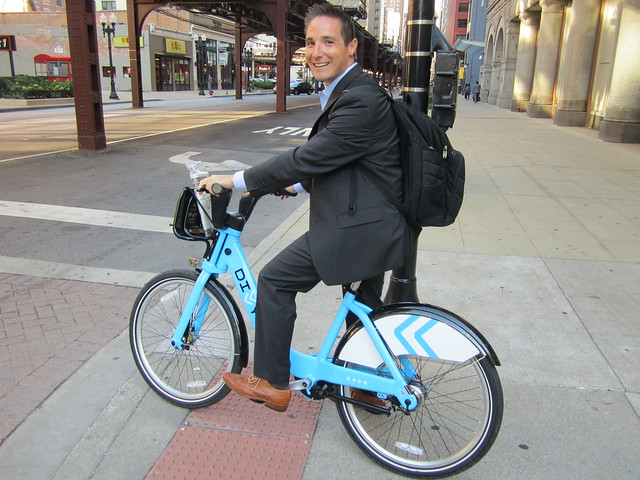Major media have a habit of blowing bike-share problems out of proportion. Witness the 2009 BBC story that cast theft and vandalism as an existential threat to Velib in Paris. Five years later, Velib is still going strong. The most recent entry in the genre is Christopher Matthews' misguided story on the Bixi bankruptcy in TIME. Headline: "Why America’s Grand Bike-Sharing Experiment Is Failing."

The main mistake Matthews makes is to conflate Bixi's troubles with the fate of American bike-share overall:
The question now is whether this is the beginning of the end for the bike-sharing experiments that have spread quickly across the U.S. So far, officials from various bike-sharing programs are saying no.
This is a poor way to frame the issue, for a few reasons. While Bixi is the dominant supplier in the American bike-share market, it is far from the only one. Medium-sized systems in Denver, Miami Beach, and Austin use equipment from other companies, so the Bixi bankruptcy doesn't affect all U.S. bike-share systems.
The American bike-share operators that do use Bixi equipment will probably have serious logistical challenges on their hands, but there are reasons Matthews couldn't find a single source to back up his doomsday scenario. Bixi itself relies on subcontractors to make most of its equipment and software. In a worst-case scenario where Bixi is broken up, those firms could be tapped to supply bike-share systems with components that integrate with existing equipment.
Matthews doesn't mention any of these contingencies. He just keeps making the same unsupported claim:
Bixi hasn’t been able to operate profitably and is now owned by the City of Montreal -- which only two years ago approved a whopping $108-million bailout package to keep the company afloat. That may call into question the long-term viability of these programs.
Again, other bike-share manufacturers like B-Cycle and Deco Bike aren't filing for bankruptcy. What Bixi's financial distress calls into question is Bixi's management. Two and a half years ago, Montreal’s auditor general lambasted Bixi for having "an illegal organizational structure, inadequate planning and an absence of oversight and accountability." The company's most notorious business decision was to part ways with 8D Technologies and its software platform, which had powered an initial run of success in cities like Washington and London. Bixi's product hasn't been the same since.
Matthews fails to clearly distinguish between Bixi's profitability and the financial viability of bike-share operators:
Most new services take many years to achieve profitability. The New York system, for instance, has caught on quickly with New Yorkers, but is still in the red, despite $30 million in revenues since its launch and millions in sponsorship funding from Citibank and Mastercard.
The issue of operating profitability is only tangentially related to Bixi, which supplies several American bike-share systems but doesn't run any of them. Most cities are willing to subsidize their bike-share systems to some extent, so profit is not a precondition for success. (Only New York has stipulated that it won't subsidize bike-share, but even there, new Mayor Bill de Blasio could decide to override that Bloomberg-era rule.) The subsidies tend to be quite small. Within about a year and a half of opening, for example, DC's Capital Bikeshare was recovering nearly all of its operational expenses with revenue from users.
Of course, bike-share systems need good suppliers to keep subsidies low or achieve profitability. But here's the big angle that Matthews missed: Bike-share operators in New York and Chicago were fed up with Bixi because its replacement for the 8D software system was dragging down performance. It's too early to say exactly how the bankruptcy will play out, but one consequence is that there's a path to bring 8D and its more highly-regarded software back into the fold, which would help these systems become more cost-effective.
Bixi's bankruptcy is a big deal for American bike-share systems, but the implications don't match up with what TIME told its readers.





